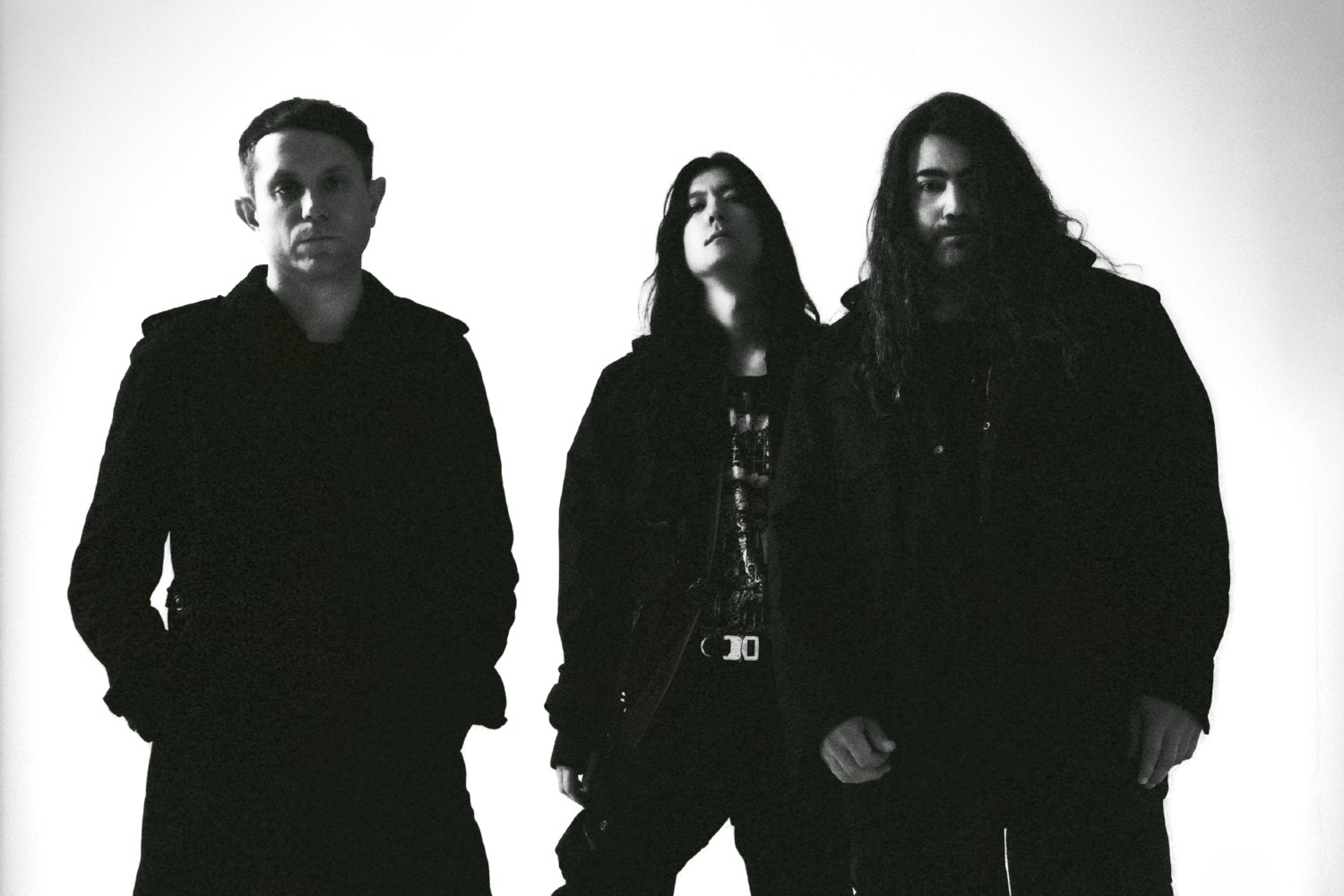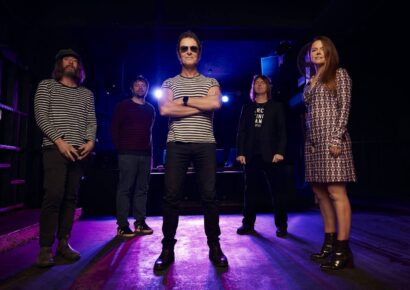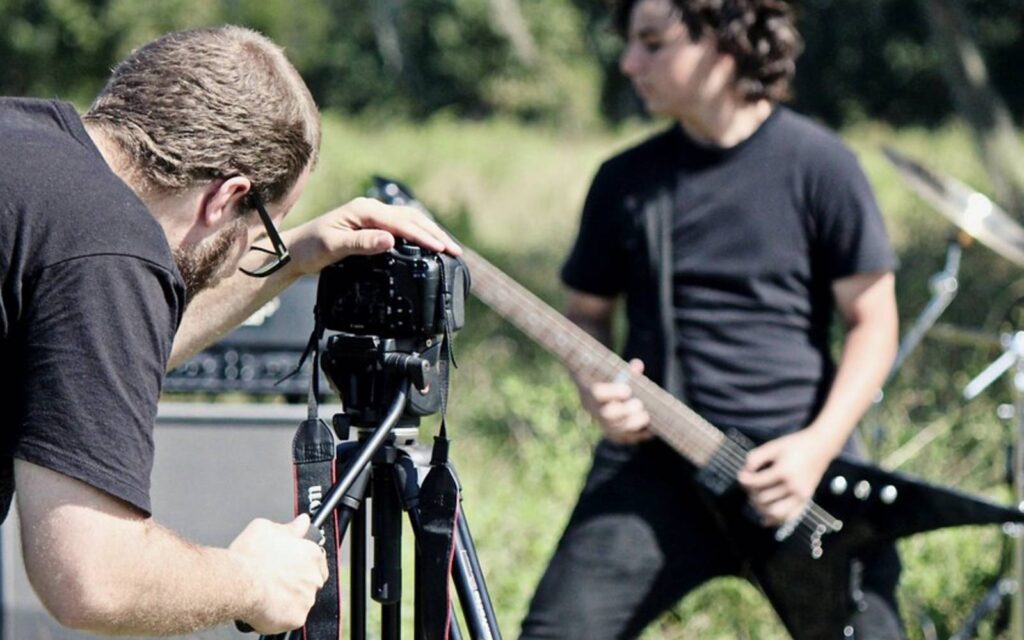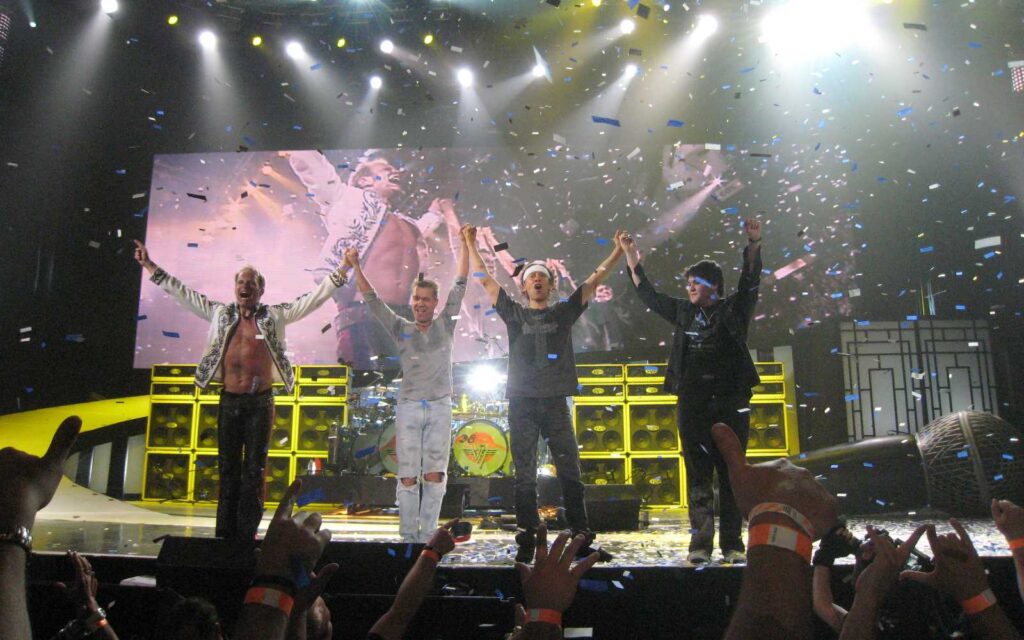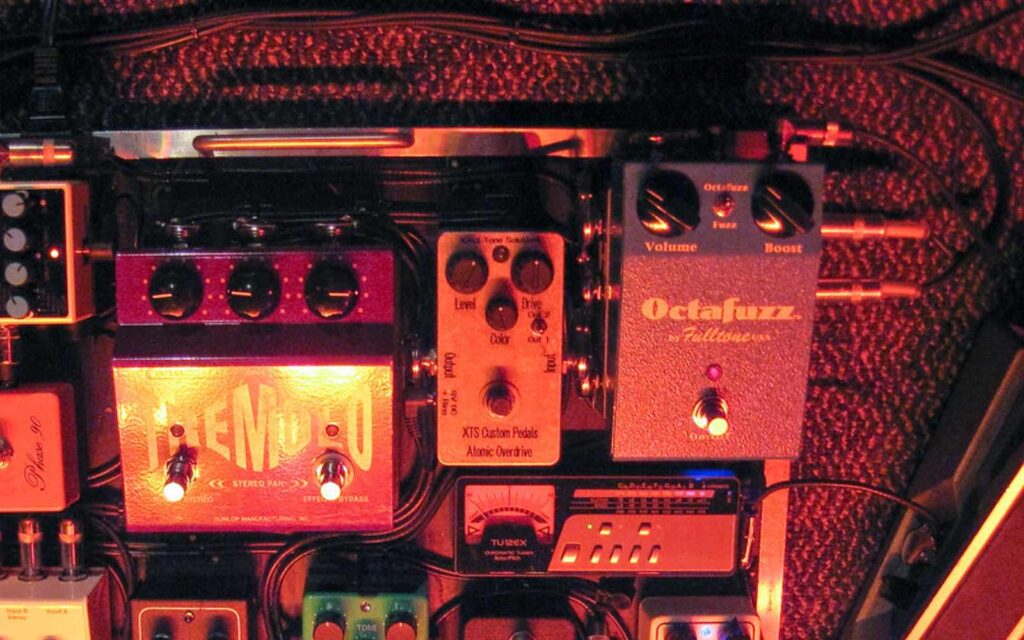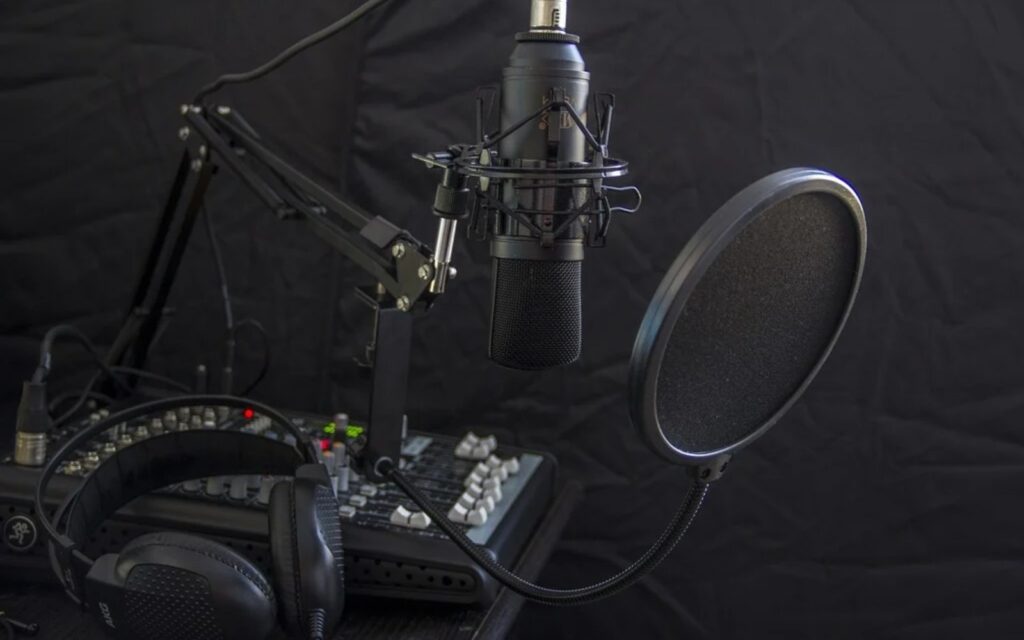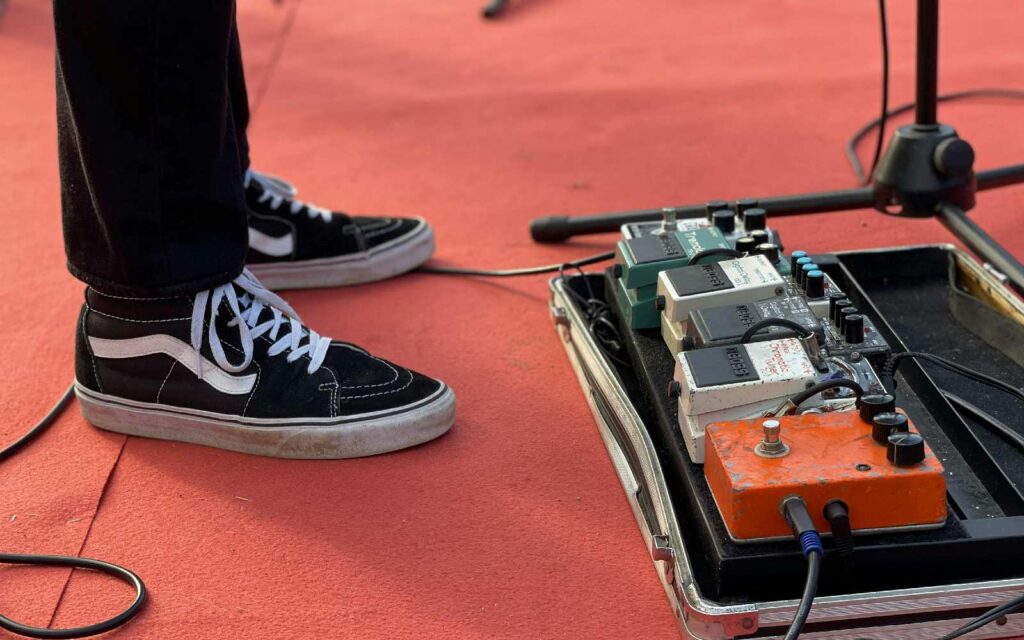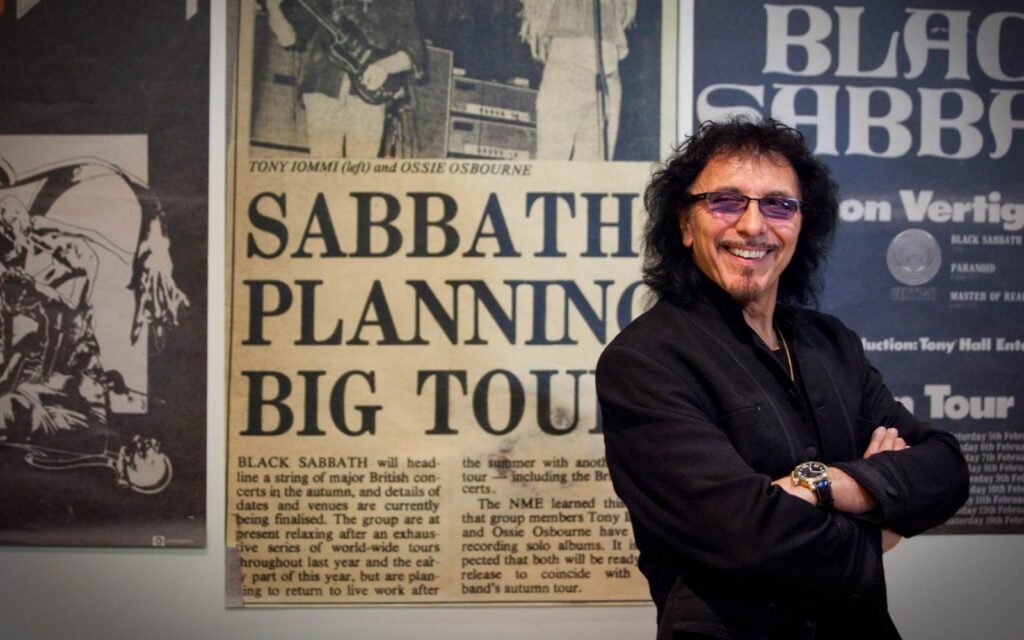Their sound is difficult to define, it straddles industrial, electronic, metal and noise seamlessly, making it hard to categorise them, but enabling them to collaborate with musicians all over the planet.
HEALTH are a dynamic trio hailing from Los Angeles. Their new record RAT WARS is out December 7, their first studio album (besides various collaborations) since 2019’s VOL. 4 :: SLAVES OF FEAR. The new record is inherently HEALTH, but with something new, something fresh. John Famiglietti, bass player and “software player”, and Jake Duzsik, the band’s vocalist and guitarist are sat, ready to talk RAT WARS.
I begin by asking how long they’ve had these songs in the works.
Read up on all the latest features and columns here.
“I think the whole record, in earnest, is probably 1.5 years. I know Jake and I have demos we probably started during the pandemic, but that would be the minority of what’s on the record.” begins for the band. “Right?” he says, turning to Jake.
“Yeah, I don’t have a very clear, perfect recall of what songs… I know that there were certain demos that were definitely started while the collaboration record, the second one, was being finished. Just melodies, ideas, roughs.” begins Jake. “That could date back into 2020, but the actual production [and] studio work would’ve been begun in 2022.”
Okay, so they work fast. But what does writing actually look like for HEALTH? I ask if they’re writing alone and bringing ideas to the table or writing in the room as a band.
“Either,” begins John. “Certain songs you bring in as a demo and then we figure it out, or re-produce it. We don’t have one way of doing it.”
Jake chimes in here “When we say ‘in a room’, it’s not like Lynyrd Skynyrd jammin’ out “Freebird”. We mean ‘in a room’ in a studio.”
He continues “We’re definitely using the studio in the modern sense, especially because in the pandemic, both John and I built out our home working spaces. A lot of the collaborations were done that way. But I think there was a lot of ‘Okay here’s a rough idea’ that started here, or maybe I had a whole song but all the productions needs to be re-done.” explains Jake, continuing to explain that there’s a myriad of ways songs come together from idea to finished master.
John wraps this up succinctly. “I got two words: Ableton Live.”
They’ve taken the conversation down a path I’m excited about. John uses Ableton, while Jake explains that he uses Logic. I continue to ask what they mean by “built out our home working spaces”. Is this hardware, synths, instruments?
“We actually don’t use shit for hardware,” John states with a smile. “I don’t like a lot of clutter, most of the crazy-ass sounds are all software. I think expanding means getting really nice monitors.”
“What are the monitors?” I ask.
“Oh, PMC.” answers John, grinning. “Love the PMCs.”
I agree, PMCs showing up in more and more studios in front of some of the world’s best engineers.
Jake’s workflow contrasts this, as he explains “I’m a luddite. I’m technically a fucking caveman when it comes to productions, so I think that I still make music very tactile-y, and the pandemic being what it was, it just forced me to become… competent would be a stretch, but to become more competent in terms of like—I had to buy a brand new computer that was up to snuff to handle what I wanted to handle, I got a good preamp, like if I’m recording my vocals they might end up being final vocals, so I have a Neve that I can record guitars and vocals into, good vocal mic, good interface, weighted keys [on a] MIDI controller.” he explains.
“To me it’s all just about reducing the barrier to doing competent work.”
I agree here, pausing to say that people get excited about a heap of new gear, always chasing the next sound without making music along the way. Their new purchases hold them back from actually being creative, which really is the point of it all.
“Yeah, extremely.” John begins. “Like ‘if I get this and this, and then I’ll get to work. It’s like, just do it with what you got.”
Jake adds “I think a lot of people love the pomp and circumstance of putting together all the things. Like I fucking hate that. I just wanna work.”
“I think the zenith of that is, we know so many people in the LA underground scene with modular synths. Like ‘Oh, I’m gonna start making techno, fucking drop 45-grand on synths’, which are rad, but like you know you can just do that with a computer?”
It’s not to say that hardware synths aren’t cool to have, but in the interest of maintaining a steady body of work, HEALTH choose software so they can be “productive and prolific.”
I pivot here, pressing their creative process. They’re all producers and songwriters, but where does the writing process end and recording begin or is it all combined?
“It’s mixed. We really like how modern records are made, we also get off on taking long periods of time between stuff. Like revisiting songs later or re-producing them. We’re very comfortable with that like ‘Oh, we already did the vocals. Fuck ‘em, we’ll just do them again.’”
“ [If] something needs to sound better, we’ll just re-do all the production.”
Jake agrees here, saying “Yeah, we don’t love having to do anything like that, it’s not exciting, it’s more just having been doing it long enough you just accept the fallacy of some cost.”
I acknowledge this, saying a lot of people won’t touch songs if parts have already been recorded, regardless of new ideas or feelings towards recorded takes and parts. I acknowledge it’s cool that they’re happy to re-do things in the interest of things being right.
“I mean,” Jake begins. “At the end of the day, you’re only gonna have so many releases, and we have releases where we weren’t [happy with]… you always struggle and you wish something was better. More fidelity, more low end, that’s natural. But when you’re really unhappy with how a record sounds, it really fucking stays with you.”
“If there’s something you can do within reason to make it better, you just do it.”
John nods, and Jake continues.
“Like, we know people who’ll do thirty different structural versions of a song… I think if you do that enough times, you kinda just don’t know what you have anymore.”
I agree, saying that if you need to re-work something 30 times, there’s probably a larger problem at play.
We turn to mixing, having been through the creative process, John explaining that despite them all having a vested interest in audio, production and sound, they don’t see themselves as that technically minded, especially not to be the last step of quality control that is mixing and mastering.

Jake continues “I want someone [to mix] whose career and lifeblood has been established by them being a high echelon mixer.”
I shift here, acknowledging that mix and production there’s a liveliness to RAT WARS. It’s inherently HEALTH but it sounds the most like a band, per se, than they ever have.
“There’s a lot of playing, some things are pulled off grid and tempo changes.” begins John.
Jake continues “Yeah, there’s some rawness. Whether it’s guitars or using some fucked up sample, or the way we use live drum sounds. We want it to feel hybridised, obviously we’re not a band rockin’ out, recording all our shit at the same time together in a big room.”
I try to encapsulate what Jake’s saying, but he says it better than I ever could: “It’s slick and raw at the same time.”
As a closer, I turn the conversation to their collaborative records, and ask the guys about dream collaborations.
Johns laughs “Anyone, like… if Led Zeppelin reforms!”
Jake continues, adding his “My legitimate ones would be New Order, and would love to try to do a track with Iggy Pop.”
Keep up with HEALTH here.
